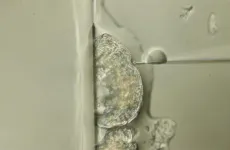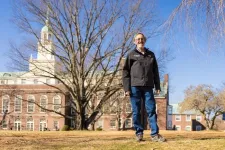(Press-News.org)
Some species of tardigrades are highly and unusually resilient to various extreme conditions fatal to most other forms of life. The genetic basis for these exceptional abilities remains elusive. For the first time, researchers from the University of Tokyo successfully edited genes using the CRISPR technique in a highly resilient tardigrade species previously impossible to study with genome-editing tools. The successful delivery of CRISPR to an asexual tardigrade species directly produces gene-edited offspring. The design and editing of specific tardigrade genes allow researchers to investigate which are responsible for tardigrade resilience and how such resilience can work.
If you’ve heard about tardigrades, then you’ve no doubt heard about their uncommon abilities to survive things like extreme heat, cold, drought, and even the vacuum of space, which different members of the species possess. So naturally, they attract researchers keen to explore these novelties, not just out of curiosity, but also to look at what applications might one day be possible if we learn their secrets.
“To understand tardigrades’ superpowers, we first need to understand the way their genes function,” said Associate Professor Takekazu Kunieda from the Department of Biological Sciences. “My team and I have developed a method to edit genes — adding, removing or overwriting them — like you would do on computer data, in a very tolerant species of tardigrade, Ramazzottius varieornatus. This can now allow researchers to study tardigrade genetic traits as they might more established lab-based animals, such as fruit flies or nematodes.”
The team used a recently developed technique called direct parental CRISPR (DIPA-CRISPR), based on the now-famous CRISPR gene-editing technique, which can serve as a genetic scalpel to cut and modify specific genes more efficiently than ever before. DIPA-CRISPR has the advantage of being able to affect the genome of a target organism’s offspring and had previously been shown to work on insects, but this is the first time it’s been used on the noninsect organisms that include tardigrades. Ramazzottius varieornatus is an all-female species that reproduces asexually, and almost all offspring turned out to have two identical copies of the same edited code, unlike other animals, making it an ideal candidate for DIPA-CRISPR.
“We simply needed to inject CRISPR tools programmed to target specific genes for removal into the body of a parent to obtain modified offspring, known as ‘knock-out’ editing,” said Koyuki Kondo, project researcher at the time of the study (currently assistant professor at the Department of Life Science at Chiba Institute of Technology). “We could also obtain gene-modified offspring by injection of extra DNA fragments we want to include; this is called ‘knock-in’ editing. The availability of knock-in editing allows researchers to precisely edit tardigrade genomes, allowing them to, for example, control the way individual genes are expressed, or exhibit the genes’ functions.”
The main resilience trait this species demonstrates is their ability to survive extreme dehydration for long periods. This was previously shown to be partially due to a special kind of gel protein in their cells. And this trait is interesting as it has also been applied to human cells. Kunieda and other tardigrade researchers think it’s worth exploring whether something like an entire human organ could one day be successfully dehydrated and rehydrated without degradation. If that is possible, it could revolutionize the way organs are donated, transported and used in surgery to save lives.
“I understand some people feel anxious about gene editing, but we performed the gene-editing experiments under well-controlled conditions and secured the edited organisms in a closed compartment,” said Kunieda. “CRISPR can be an incredible tool for understanding life and aiding in useful applications that can positively impact the world. Tardigrades not only offer us a glimpse at what medical advances might be possible, but their range of remarkable traits means they had an incredible evolutionary story, one we hope to tell as we compare their genomes to closely related creatures using our new DIPA-CRIPSR-based technique.”
###
Journal article:
Koyuki Kondo, Akihiro Tanaka, Takekazu Kunieda. “Single-step generation of homozygous knockout/knock-in individuals in an extremotolerant parthenogenetic tardigrade using DIPA-CRISPR”, PLOS Genetics, DOI: 10.1371/journal.pgen.1011298
https://doi.org/10.1371/journal.pgen.1011298
Funding:
This work was supported by Japan Society for the Promotion of Science JSPS KAKENHI Grant Numbers JP20H04332, JP20K20580, JP21H05279 (to TK). AT received a Grant-in-Aid for JSPS Fellows (JP21J11385).
Useful links:
Department of Biological Sciences
http://www.bs.s.u-tokyo.ac.jp/english/about_us/faculties/biology.html
Graduate School of Science
https://www.s.u-tokyo.ac.jp/en/
Research contact:
Associate Professor Takekazu Kunieda
Department of Biological Sciences, The University of Tokyo,
7-3-1 Hongo, Bunkyo-ku, Tokyo, 113-8656, Japan
kunieda@bs.s.u-tokyo.ac.jp
Press contact:
Mr. Rohan Mehra
Public Relations Group, The University of Tokyo,
7-3-1 Hongo, Bunkyo-ku, Tokyo, 113-8656, Japan
press-releases.adm@gs.mail.u-tokyo.ac.jp
About The University of Tokyo:
The University of Tokyo is Japan's leading university and one of the world's top research universities. The vast research output of some 6,000 researchers is published in the world's top journals across the arts and sciences. Our vibrant student body of around 15,000 undergraduate and 15,000 graduate students includes over 4,000 international students. Find out more at www.u-tokyo.ac.jp/en/ or follow us on X (formerly Twitter) at @UTokyo_News_en.
END
Most people today would lean towards environmentally friendly life choices, but not at the expense of being clean. When it comes to our washing habits, the fear of being perceived as dirty often wins out over the desire to act in an environmentally friendly way. And the more inclined we are to feel disgusted, the more we wash our clothes. This is shown by a unique study from Chalmers University of Technology, Sweden, that examines the driving forces behind our laundering behaviours and provides new tools for how people's environmental impact can be reduced.
Today, we wash our clothes more than ever ...
The important role of the Southern Ocean in global biological processes and the carbon cycle has been confirmed anew by a study published in Science this week that, for the first time based on field evidence, reveals the underappreciated role of inorganic Zinc particles in these cycles.
The Southern Ocean plays the greatest role in global phytoplankton productivity, which is responsible for absorbing atmospheric carbon dioxide. In these processes, Zinc, present in trace quantities in seawater, is an essential micronutrient critical to many biochemical processes in marine organisms and particularly for polar phytoplankton ...
A link between the neurotransmitter dopamine and the mentalising abilities of healthy people has been identified for the first time in a new study.
Mentalising describes the act of attributing and understanding mental states (such as thoughts, feelings or intentions) in other people and in oneself. Researchers at the University of Birmingham have been able to show that changing people’s brain dopamine levels affects their mentalising abilities. Their results are published today in PLOS Biology.
Dopamine ...
Bacteriophages, viruses that attack and destroy bacteria, are everywhere in the natural world where they play a vital role in regulating microbe populations in ways that are not yet well understood.
New research led by the University of Utah and University College London (UCL) has found that plant bacterial pathogens are able to repurpose elements of their own bacteriophages, or phages, to wipe out competing microbes. These surprise findings suggest such phage-derived elements could someday be harnessed as an alternative to antibiotics, according to Talia Karasov, an assistant professor in the U’s School of ...
Smithsonian Conservation Research Brief:
Carbon dioxide-fueled accelerated plant growth dilutes nutrients, impacting herbivore populations.
A new study from researchers at the Smithsonian’s National Zoo and Conservation Biology Institute (NZCBI) warns that as human activities increase carbon dioxide (CO2) levels in the atmosphere, they may decrease the nutrient contents of plants. Declines in nutrient content, known as Nutrient Dilution, may already be harming plant-eating animals and could cause further population declines farther up the ecological chain. The paper, published today in the journal Trends ...
ACM, the Association for Computing Machinery, is pleased to announce that 2023 ACM A.M. Turing Award recipient Avi Wigderson will give his Turing Lecture at the 2024 ACM Symposium on the Theory of Computing (STOC) on Thursday, June 27 in Vancouver, British Columbia, Canada. Wigderson received the A.M. Turing Award for foundational contributions to the theory of computation, including reshaping our understanding of the role of randomness in computation, and for his decades of intellectual leadership in theoretical computer science.
In "Alan Turing: A TCS Role Model," Wigderson ...
Opioids are a broad group of effective pain-relieving medicines that can become highly addictive in some individuals. According to government sources, nearly 40 million people are addicted to illicit drugs worldwide. In 2017, the U.S. Department of Health and Human Services declared the opioid crisis a national public health emergency. To combat the opioid epidemic, researchers at University of California San Diego School of Medicine will develop an AI model that will more accurately predict opioid addiction in high-risk patients.
The project is funded through a three-year contract with Wellcome Leap as part of a $50 million groundbreaking initiative, called ...
Opioid overdoses for pregnant patients are at an all-time high in the United States, even as overall numbers are improving. Attention deficit hyperactivity disorder (ADHD) is highly correlated with substance use disorders, yet treatment protocols to help expecting parents manage opioid use disorders and ADHD together are essentially nonexistent.
New research from Washington University School of Medicine in St. Louis may help change that. A study published in Nature Mental Health indicates that patients with opioid use disorders and ADHD who remain on their ADHD medications during their pregnancies are far more likely to adhere to treatment for opioid use, and far less likely to ...
The small footprint and dim light of white dwarfs, remnants of stars that have burned through their fuel, may make excellent backdrops for studying planets with enough water to harbor life.
The trick is spotting the shadow of a planet against a former star that has withered to a fraction of its size and finding that it’s a planet that has kept its water oceans for billions of years even after riding out the star’s explosive and violent final throes. A new study of the dynamics of white dwarf systems suggests that, in theory, some watery planets may indeed thread the celestial needles necessary to await ...
The ecosystem that surrounds a tumor, also known as the tumor microenvironment, includes immune cells, tissues, blood vessels and other cells that interact with each other and with the tumor. Over time, the tumor shapes this ecosystem to its own benefit, monopolizing all of the nutrients and shielding it from immune attack. In working to understand the ecosystem’s role in cancer risk, development and treatment, researchers at The Jackson Laboratory have not only identified how two immune cells work together to fight cancer but also revealed the cascade of molecules that help coordinate this attack.
The work, ...





